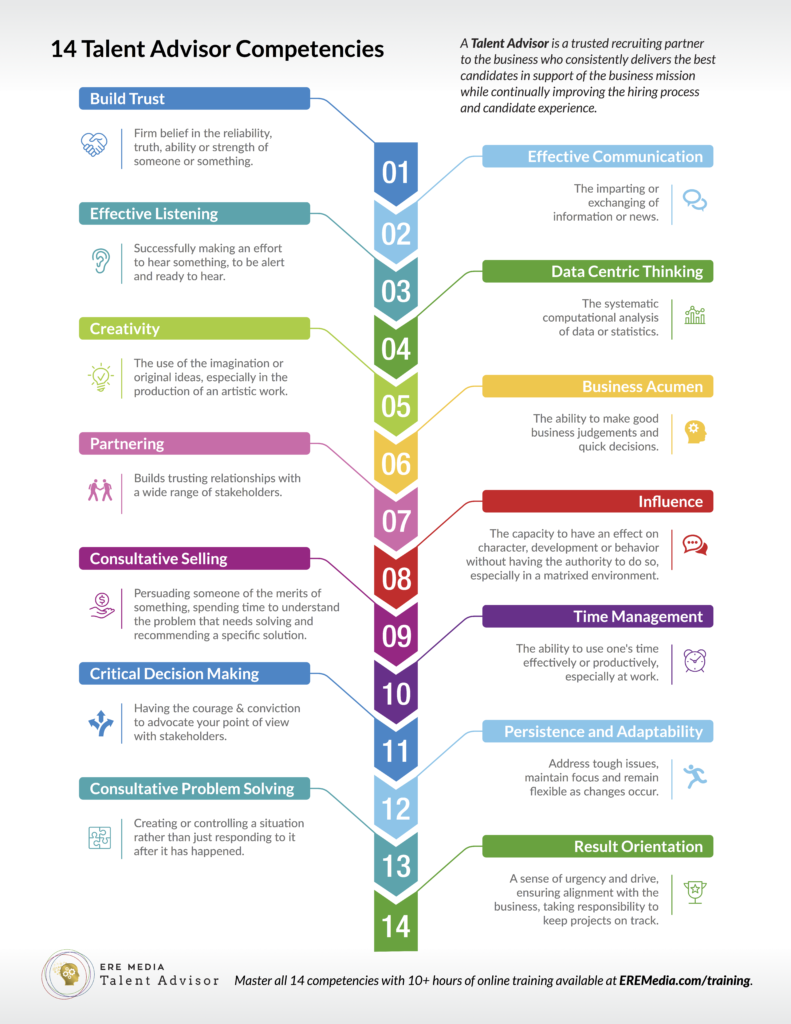2016 was the year that we realized that our jobs may actually be in jeopardy to a computer.
The rise of companies like Olivia, Arya, and Mya brought to life (metaphorically speaking) the reality of how close technology is to being able to handle the day to day administrative activities of the recruiting function.
Yet it seems there’s hope. Most articles I’ve read on this subject suggest that AI will replace the middleware aspect of recruiting and other functions, but is not ready to replace value added thinking and creativity.
Additionally, many believe that AI will enhance a human’s ability to execute in their role, not replace the human completely. For talent acquisition, our recruiters will spend less time sourcing and coordinating the process. The future recruiter will spend more time on the selection process. Selection is not acronym-matching and forwarding the resume to the hiring manager for a decision, but rather a true partner who has the business acumen to understand the needs of the business and the courage to have an opinion (even when it’s not a popular one).
The skills that will be required of tomorrow’s recruiter have been called a many things, but we at ERE have defined this as the difference between a recruiter and a talent advisor. A talent advisor is a trusted recruiting partner to the business who consistently delivers the best candidates in support of the business mission while continually improving the hiring process, and candidate experience.
Through conversations with our contributors, speakers, and hundreds of TA leaders, we’ve identified 14 competencies that talent advisors exhibit. Each plays a part in creating a well-rounded professional who cannot be replaced by AI.
The mastery of these skills below will be foundational to transforming recruiters into talent advisors and ensuring that the recruiting function is adding value that cannot be replaced by a computer.

